
Writing a character with mental illness can be a very tricky thing. Writers usually go for the extremely rare, exotic and spectacular: multiple personality disorders, extreme manifestations of psychopathy or sociopathy, high functioning autism with that ever alluring ‘savant’ magic going for the character, bombastically spectacular schizophrenia… in many ways, a character's mental illness turns out to also be a super power or a magical trait, even. 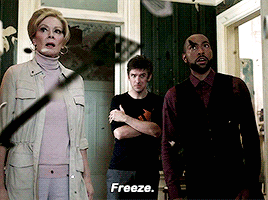

But while it is true that very extreme and rare cases of mental illness might give such behaviors and characteristics that touch upon the fantastical, the real range of mental illness is …almost pedestrian: it is very common, first of all. It is quiet, complicated and sort of like a lurking presence in your day to day routine. And it does little things to you that go a long way, either by accumulation or by progression into more and more serious behaviors, or both. 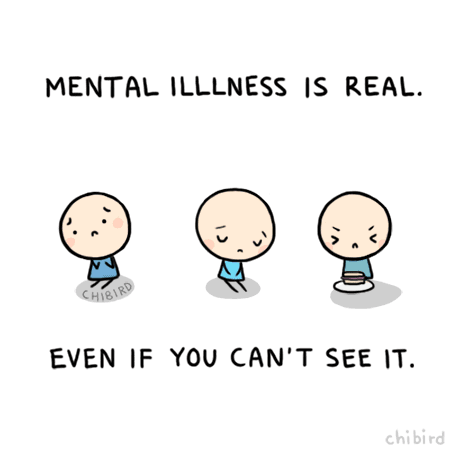
It's never ever charming, dashing, spectacular or awesome- at least not for the person that is challenged with it.
And it is very, very common. 
So what IS mental illness? In truth, we don't even call it mental illness anymore, but rather mental disorder. And that is a far more apt term to use, especially for writers and webcomic creators that want to implement such elements in their characters.
According to the DSM-5 (i.e. the fifth edition of the Diagnostic and Statistical Manual for Mental Disorders, the reference most psychologists and psychiatrists use for their diagnoses) the definition for mental disorder goes like this:
A mental disorder is a syndrome characterized by clinically significant disturbance in an individual's cognition, emotion regulation, or behavior that reflects a dysfunction in the psychological, biological, or developmental processes underlying mental functioning. Mental disorders are usually associated with significant distress in social, occupational, or other important activities. An expectable or culturally approved response to a common stressor or loss, such as the death of a loved one, is not a mental disorder. Socially deviant behavior (e.g., political, religious, or sexual) and conflicts that are primarily between the individual and society are not mental disorders unless the deviance or conflict results from a dysfunction in the individual, as described above.
tl;dr: A mental disorder is a set of behaviors that cause problems in the way an individual thinks (content and processing of said content in one's thoughts), interprets the world, reacts to the world, grows up in the world, works/makes money/makes friends/ loves others in the world. If a person cannot function in their day to day life interacting with the world and the world is NOT imploding around them, then it's very likely that they're dealing with some kind of mental disorder. 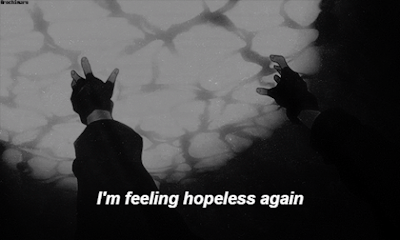
So the biggest element we have to take from this definition is that a person facing a mental disorder is a person that has trouble functioning in some aspect of their daily lives. It isn't a person that gets a boost in everything they do due to mental disorders they have. It isn't a person that is happy with the mental disorder they have. And very often, considering there is social stigma associated with mental disorder, they are not eager to let others know they are facing the challenge of a mental disorder. 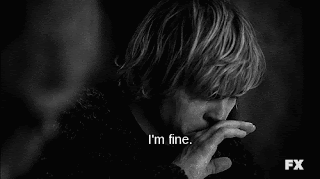
That brings me to another point I feel is important to keep in mind when writing mental issues: people and their families are often ashamed of it (they never should be, but this is the practical reality of it) and thus avoid admitting they have it, or that they need help, or that they aren't fully in control of their lives. They don't go around advertising about it as a rule.
And of course, there's also the people that are not aware they have a mental disorder, or that they need help at all (despite their environment being painfully aware of it, at least in terms of impact. They may not know what is wrong, but they'll know that something is.)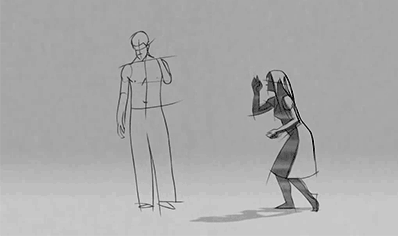
Another thing you must consider, especially while picking the mental disorder your character will have is that no mental disorder (except those that are genetic or neurological) occurs in vitro. It is almost always, 99,99% a result of a person's life experiences and environment: a mental disorder isn't there just for fun. It's a way a person has to cope with something in their lives they can't otherwise grapple with. And that something is almost always stemming from a circumstance or a whole set of circumstances in their history, and the people they are with as well as the stuff they have to deal with historically (i.e. the social norms and conditions of the time they are living in) and socially.
All of this might sound overwhelming, which is why I've decided to address this issue in three parts- this being a very general introduction to the range of things we have to consider when designing a character with mental disorder(s), the second part being how to pick, research and implement the mental disorder we will be portraying in the character and finally in the third part provide a set of good examples of characters in movies, comics and narrative works and explain why they're good.
Finally, one last word I'd like to say in this first, very broad and vague intro to writing mental disorders: not all atypical behavior is problematic (i.e. a mental disorder) and not all typical behavior is okay (i.e. not a mental disorder). It all hinges on this one important thing: functionality in daily life.
More on that in part 2, where we talk about these things in detail!
Special thanks to our patrons!!

Justnopoint - Banes - Rmccool - Abt Nihil - Phoenixignis - Gunwallace - Cdmalcolm1 - PaulEberhardt - Scruff - Dragonaur - Emma Clare - dylandrawsdraws -
drinds -

Writing Mental Illness (Part 1)
Tantz_Aerine at 12:00AM, Jan. 12, 2019
5 likes!


©2011 WOWIO, Inc. All Rights Reserved Mastodon





Tantz_Aerine at 10:44PM, Jan. 13, 2019
Thank you for all your thoughtful comments guys!
DaniBoy at 3:04PM, Jan. 13, 2019
I don't usually interact on this site, but I really like this topic. Funny enough my comic was created as a means to cope when I couldn't bring myself to talk to anyone about my increasing longing for suicide. The helplessness and embarrassment is so real, it didn't help being raised that it was something you can just "get over", and that only "crazies" need help. Thanks to turning those emotions into a creative outlet I was able to bring myself to see a Psychologist, and even though I still have some issues, things have been a lot better. Also realizing being open helps with making the problem less stigmatized. This topic reminds me of how careful I need to be with my portrayal of mental illness/mental disorder. Mental health is something I take seriously from an empathetic, and scholastic standpoint, but my comic tends to be a little overly bombastic. It's good to get grounded from time to time. Thank you, I can't wait to read the continuation of this post!
Genejoke at 1:33PM, Jan. 13, 2019
Hey, I resemble that remark! Haha, I'm an aspie with severe anxiety and depression which means I can beat the predator according to the crappy new predator movie that came out last year. @Bravo... about your most recent comment, same here, same here.
bravo1102 at 4:34AM, Jan. 13, 2019
Maybe someone should do a comic with some mentally disabled people and show how coping mechanisms keep them from being helpless. We could use Bob Newhart and his therapy group. Ever wonder why it took me until I was in my 40s to get creative again and try comics? My whole world came crashing down and I needed to try something different. You know the expression "where you been, it's like you dropped off the face of the earth." I'd reply, "Yeah, I did. Really hard to climb back on."
AmeliaP at 6:21PM, Jan. 12, 2019
When you live with people with mental disorder, you know how overwhelming it can be for them. And the feeling of powerlessness is legit. Sometimes, I just don't know to help, so I only pay for the doctors. The mental disorder not only affects the person, but everybody who loves the person with this issue. About stories. All my characters are damaged, each one with a mental disorder (not the rare, but the common issues). My main character has drug addiction and her problem will get worse and worse.
usedbooks at 5:15PM, Jan. 12, 2019
And I am very sorry you have to live with mental illness. I hope you have been able to find some relief and treatments. A close relative (and one of my dearest friends) was really bad for a long time. I had a long (and growing) list of things I couldn't even mention or it would spiral her into a panic attack. It could even include kids movies, weather, I mean everything. I couldn't talk to her -- or not talk to her.
usedbooks at 5:11PM, Jan. 12, 2019
I knew what you meant. Just reminding others that a lot of people have made a habit of trying to hide that they are not okay.
bravo1102 at 3:36PM, Jan. 12, 2019
I meant when a mentally disabled person is displaying their true feelings, not what we do to fit in and cope. I'm the one with the diagnosis, medication and long clinical history. I'm all too aware of the difference between coping and acting okay and when someone accuses you of being a drama queen when you're falling apart. Not trying to get attention here, I really am falling apart here -- help-- you know how hard it is to keep your eyes open when they're flooded with tears? Gimme a wall a lean on I really feel awful. STOP ACTING! Sorry, not acting now, this is the REAL ME!
usedbooks at 2:45PM, Jan. 12, 2019
" People with mental disabilities aren't acting. " Well, not acting their disabilities. Many are doing their damnedest to act neorotypical. Some are very successful at it. Watch how those around you behave. Try to mimic that and wonder how they manage. Assume everyone else is also just acting.
bravo1102 at 8:29AM, Jan. 12, 2019
-- the head is prone to feeling depressed about everything before anything happens. A predisposition that is nourished by going with the derision and never the praise. You forget that everyone was in awe of your imagination and talent as a child and instead only remember the mean girl who kicked you in the shin (and is now a successful dentist -- guess she never gave up her sadism -- make for an interesting story) And some mental disabilities go through periods of popularity like PTSD. And then there's the supposed mark of honor or true talent that suffering from any form of mental illness confers on an artist. Oh you know how to suffer for your art, so you are so great. So-an-so was a complete loony so he had special interpretive talents that we just can't understand. Uh-- no.
bravo1102 at 8:20AM, Jan. 12, 2019
Go full crazy and you don't get the award. Always have some shred that isn't so acting some way still means something and displays consummate skill as opposed to just being. People with mental disabilities aren't acting. That's an important factor in portraying them. It's real -- to them. Even a schizophrenic's delusions are real -- to him. It's complete fantasy to those outside the frame of reference but the perceptions are real enough to the person to whom they are occurring. That's why there's Cognitive and Dialectical Behavioral Therapy. You step out of you head or your perception of reality and test it because it may only be based on your own mistaken feelings as opposed to an objective reality. How you see things may not be how they really are or how they appear to everybody else. You might actually be talented and capable and even popular despite your own feelings of complete inadequacy (the 99% experience basis of mental disability. Though biologically based depression --
JaymonRising at 7:43AM, Jan. 12, 2019
Do whatever you want, so long as you follow the rule of thumb: https://m.youtube.com/watch?v=X6WHBO_Qc-Q
usedbooks at 5:47AM, Jan. 12, 2019
I found out only a few years ago that when my dad was young, doctors wanted him institutionalized (his mom said no). My immediate family have been on medication for different things. My sister insists I should look into anxiety medicine, but I'm not convinced my thoughts are abnormal. (They used to be worse.) It's hard to be objective about your own brain. Because how you perceive the world, for all intents and purposes, IS the world to you. I included a recurring psychiatrist in my story to help the characters who would actually seek help. I think, irl, most people simply don't.
bravo1102 at 5:00AM, Jan. 12, 2019
Some of us have been going to mental health professionals for over forty years. Discussions of it in my family are quite matter of fact. My paternal grandfather suffered from "melancholia " and took long walks to clear his head. It's only natural that some of my characters evidence symptoms of undiagnosed mental disorders. But there are coping mechanisms. People with disorders often find ways to build a life that makes up for their illness, often by hurting others but sometimes summoning on their own strength and building a support network that is only noticed once it falls apart. And there is better living through chemistry. Even a joke to have a character going on about prozac, ativan and ambien.
usedbooks at 4:40AM, Jan. 12, 2019
Interesting article. I low-key try to include some mental disorders among my cast but never label or identify anything. It's more common irl than we know (mostly due to the social stigmas). And struggling with one's own brain sucks. I have many friends and family who have have mental illnesses, so it would be a strange world to not include them.
Ironscarf at 2:29AM, Jan. 12, 2019
Interesting piece, I look forward to the next instalment.